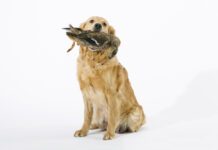I took a quick look at a list of animal-related products that were recalled in the past year due to Salmonella contamination. (I happened to be looking at the one on the website for the American Veterinary Medical Association (avma.org); its list is based on information from the U.S. Food and Drug Administration’s Center for Veterinary Medicine (fda.gov/cvm)).
Each of the following recalls was initiated due to concerns that the products “may have been potentially contaminated with Salmonella.” (Translation: A spot test revealed the presence of Salmonella, and the whole lot has to be recalled.)
- In September, the Hartz Mountain Corporation announced a recall of one lot of Hartz Naturals Real Beef Treats for Dogs.
- In August, Procter & Gamble (P&G) recalled a small number of bags from a specific lot of one of its dry cat food products (Iams Indoor Weight Control with Hairball Care).
- Also in August, Merrick Pet Care, Inc. recalled all lots of its Beef Filet Squares for Dogs and Texas Hold’ems pet treats.
- In July, P&G recalled a couple of prescription renal dry cat foods , expanding the recall at one point to include veterinary and some specialized dry pet foods.
- July also saw a recall for one of the more “usual suspects” for Salmonella contamination: a raw diet for cats. Feline’s Pride recalled its “raw food with ground bone for cats and kittens, natural chicken formula,” made between June 10 and June 21.
- In June (expanded in July), the United Pet Group announced a voluntary recall of nutritional supplements (and other products, including a batch of Nature’s Miracle Pet Mess Easy Clean-up). Included were products that were sold under a variety of labels, including Petco, Drs. Foster & Smith, Excel, DDS, and Pro-Pet. The products included supplements to promote joint health, urinary tract health, improved digestion, and pleasant breath. As well as multi-vitamins, ear powder, and products meant to stop stool-eating (coprophagia).
- Also in June, Natural Balance Pet Foods, Inc. announced a recall of Natural Balance Sweet Potato & Chicken Dry Dog Food.
Well, I could go on and on. But here’s the thing: In each case, the news release also included something like this statement: “No Salmonella-related illnesses have been reported to date.” The language varied, but the message was the same.
I draw two conclusions from this:
1. It seems clear to me that the FDA will find Salmonella in just about every product they test that contains ingredients of animal origin.
2. The vast majority of dogs and cats must be able to resist a Salmonella infection pretty easily.
And I’m left wondering: Why is our entire animal-sourced food supply so contaminated with pathogenic bacteria?





